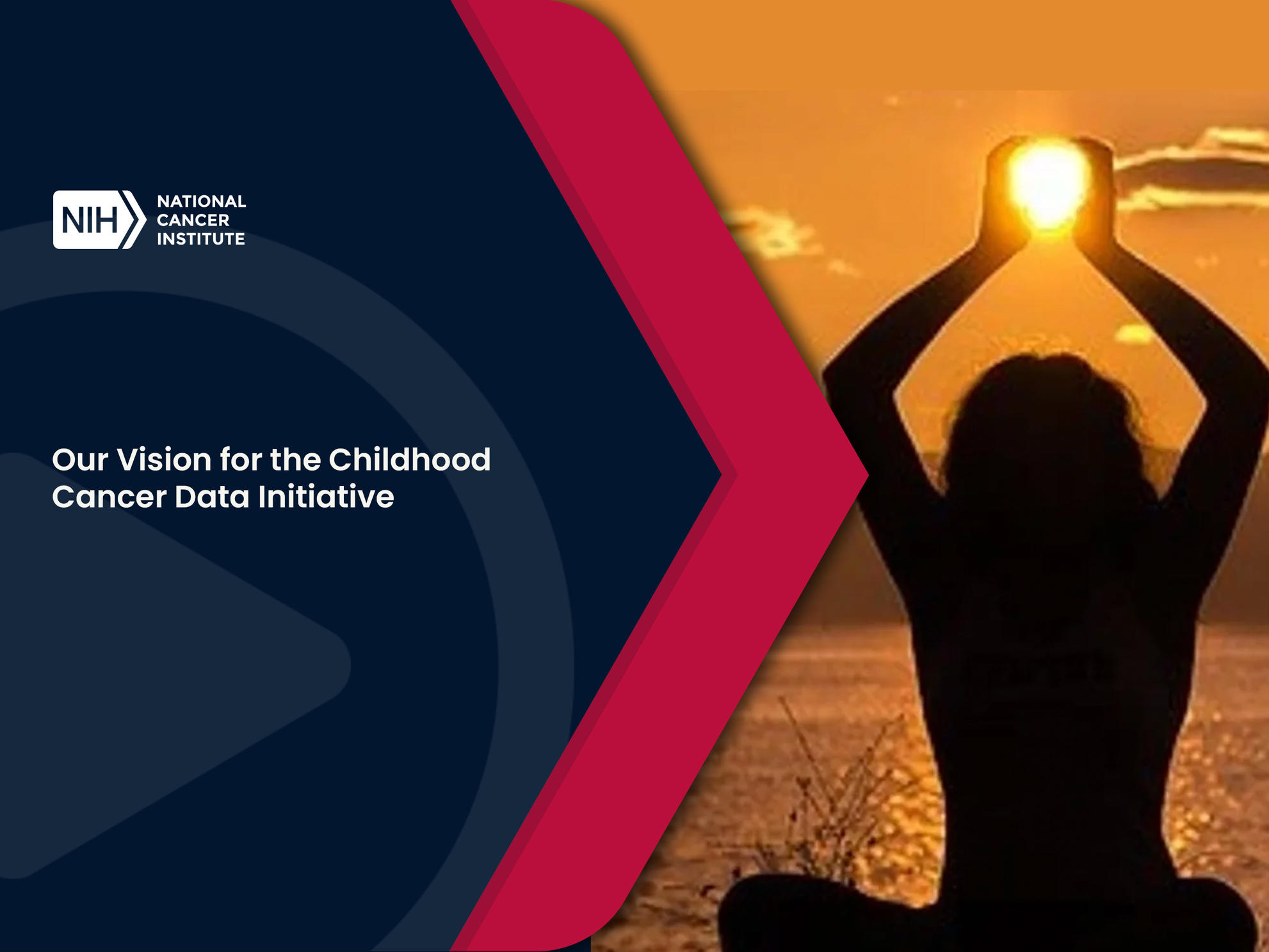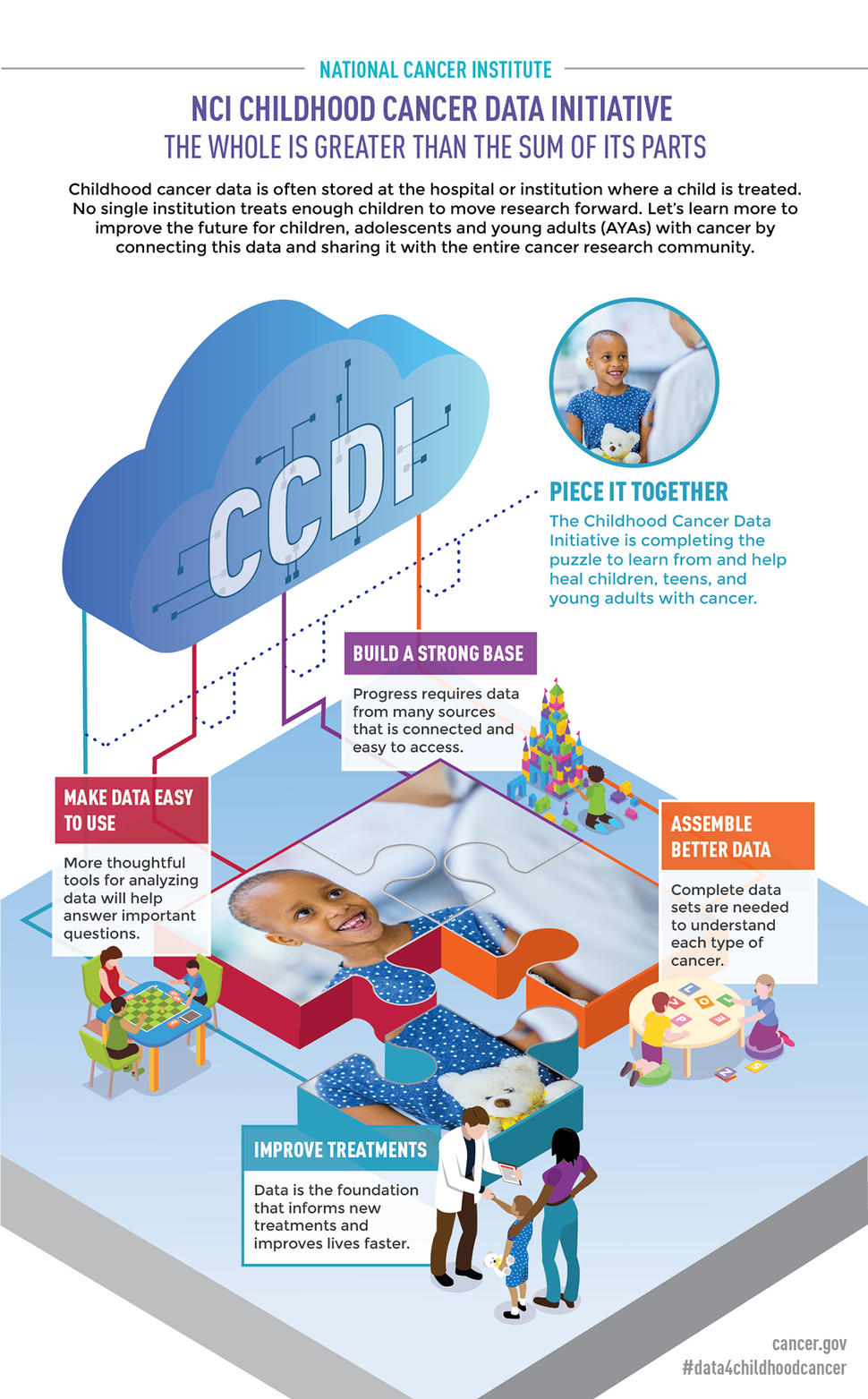A national commitment
CCDI represents an ambitious effort in data collection, sharing, analysis, and access. In 2019, NCI hosted a symposium and developed an ad hoc Board of Scientific Advisors working group who provided recommendations for the future of the initiative. It is a $50 million federal investment made in each fiscal year since 2020, with an additional $50 million proposed each fiscal year for a total of 10 years. These funds allow NCI to bring the nation’s childhood cancer research, advocacy, and care communities together in this endeavor.
How CCDI is structured
For CCDI to be successful, it requires the engagement of the entire childhood cancer care and research community. To enable broad participation, CCDI is organized into task forces that include diverse representation from the childhood cancer community (experts from within and outside NCI), including advocates, pediatric oncologists, researchers, and data scientists that represent the children, adolescents, and young adults served.
Task forces
We are forming task forces whose focus is making progress in CCDI priority areas. Each task force has a set of goals and objectives, which we will work to accomplish using consistent approaches and with the resources available to CCDI. Topics covered by task forces include the following, with more to come:
- CCDI Rare Cancer Initiative
- Common data elements
- Genomic data harmonization
- Molecular characterization
- Pediatric disease ontology
Additional information will be added here as task forces develop.

